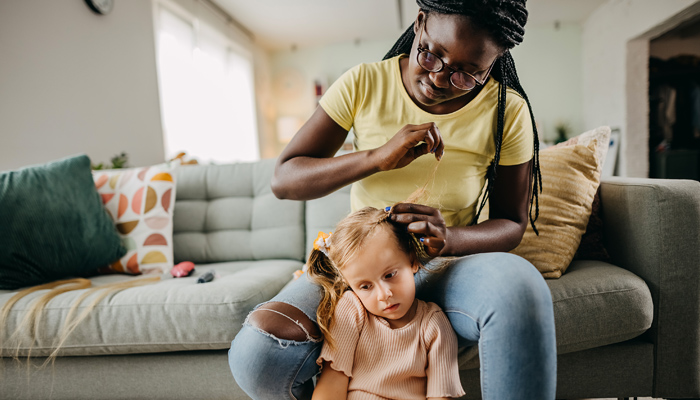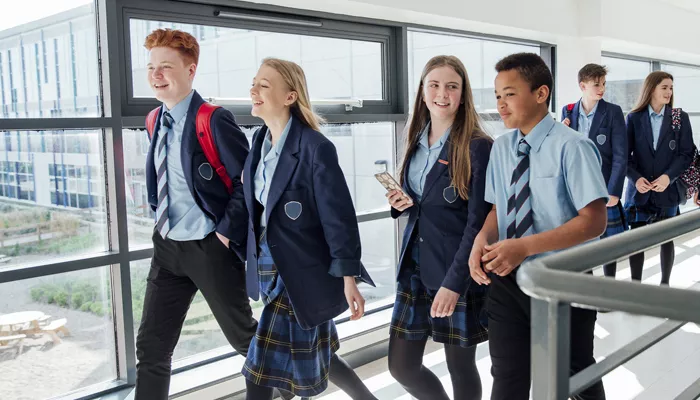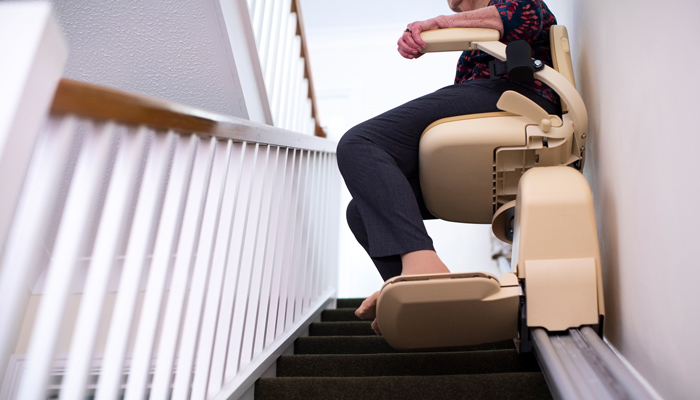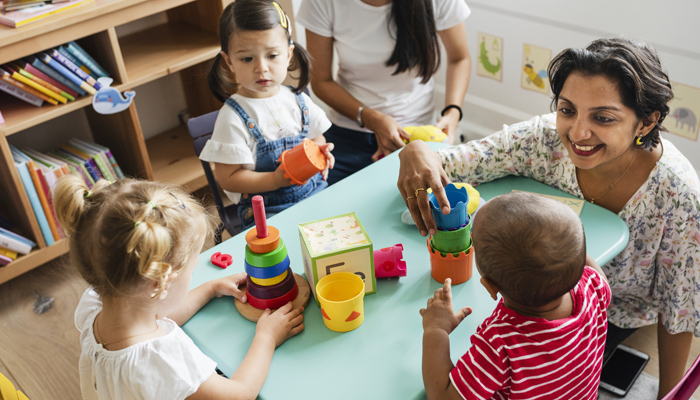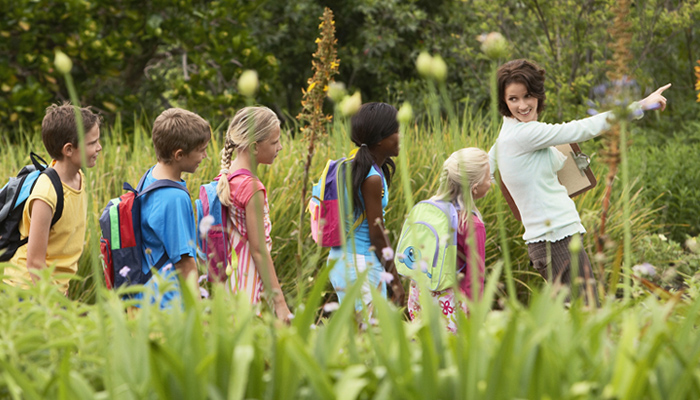Dealing with Childhood Bereavement in Schools
Supporting bereaved children and young people
On 18 November 2020, Towergate and The Education Broker were really pleased to be able to support the Mindfulness in Schools Project in hosting the first of the ‘Inviting the Experts…’ series of webinars. This is a series of CPD sessions which have been set up to recognise the incredible work that is going on in schools right now in particularly challenging circumstances and the need for school staff to have access to informative, practical advice from experts.
The session was delivered by the charity Winston’s Wish, the UK’s first childhood bereavement charity, which has been supporting bereaved children and young people since 1992. Winston’s Wish leads the way in providing specialist child bereavement support services across the UK, including providing expert support for teachers and school professionals who are supporting a bereaved pupil.
Associate Director Suzannah Phillips provided a huge amount of really excellent information and guidance about supporting a child or young person who is dealing with the death of a loved one or a member of their community.
UK statistics on child bereavement
- 480,000 children under the age of 18 have experienced the death of a parent or siblings. That is 4% of children, or 1 on 29 – around 1 child per class
- 111 children a day are bereaved of a parent. That is 1 every 22 minutes, or 1 in 41,000 children newly bereaved each year
The effect of Covid-19 on child bereavement
There has been an increase in death rates due to Covid-19. As a result, children many not have had:
- The chance to say goodbye in the normal way to a loved one
- Access to support systems such as school or friends
- The opportunity to participant in a funeral or usual cultural rituals
Impact of bereavement on children
Children respond to death in a number of ways:
- Increased anxiety – which may relate to worries about who will look after them, whether other people will die, leaving people at home, coming to school, what death is like – all sort of concerns.
- Experiencing vivid memories – it is healthy for children to share their memories. Not all the memories will be positive and that is okay.
- Sleep difficulties – thoughts and feelings from the day can interrupt sleep, and in some cases this can start a vicious cycle of increased anxiety as they are more and more tired.
- Sadness and longing – some children may become withdrawn and quiet.
- Anger and ‘acting out’ behaviour – this is children demonstrating what they are feeling. It is usual for children to feel this situation is unfair, that the situation is out of their control and for them to feel angry about this.
- Guilt, self-reproach and shame – this may depend on how someone died, or particular aspects of their relationship, or misconceptions about death or in response to comments from others.
- School problems – concentrating, getting on with friends, and potentially impacting academic attainment.
- Physical complaints – children may feel poorly as a result of stress with headaches or stomach aches, but they may also be run down due to tiredness and be more susceptible to coughs and colds.
Where adults may experience grief as ‘wading through a river’, children may ‘jump in and out of puddles of grief’. One minute they make be very sad and thinking about the person who died, and the next they may be getting on with normal life and distracted by other activities.
It is normal for children to oscillate between ‘loss oriented’ behaviours (grief) and ‘restoration-oriented behaviours’ (engagement in other activities).
What do bereaved children need?
- Age-appropriate information: Work with the family to understand what the child has been told and to engage in dialogue to ensure the child can understand what has happened in an appropriate way. Remember that children may find out information from other sources so try to provide as much accurate information to them directly.
- Help with overwhelming feelings: Ensure children know that it is normal to feel overwhelmed and to experience all sorts of new emotions and impulses. It is okay to feel overwhelmed but it may not be okay to be unable to get out of bed, or to get angry and punch someone. So they need practical tools to support them to manage their feelings.
- Reassurance they are not to blame: Children may blame themselves either for the death itself of for things they think they could or should have done. Talking this through can identify some of these issues.
- Fear and anxieties addressed: Children may have uncertainty about the future and have many new worries. Acknowledge and normalise feelings - they need to know it is okay to feel anxious, that things may be different from now on, and that there isn’t a ‘right’ way to grieve.
- Careful listing and watching: To notice changes in behaviours, especially for children who find it difficult to articulate their experience.
- Opportunities to remember: To feel connections with the person who has died. Sometimes this can be done as a group too, such as an assembly or a joint memory activity.
- Modelled grief behaviour: For adults to show when they are upset or grieving, or to have a cry, so that children can see that it is okay to do this.
- Validation of individual feelings: It is okay to experience lots of emotions. Adults can listen and acknowledge, and where appropriate, empathise: ‘I miss them too’. ‘I get angry sometimes too’. ‘I don’t think it’s fair that they died’.
- Involvement and inclusion: To give some choices to children in what is happening to them, or in how involved they are in goodbye rituals or other activities.
How you can help bereaved children at your school
Start the conversation. It is doubtful that you will make things worse – the worst has already happened. It is healthy to model how to talk about difficult things.
- “I’m sorry to hear that your Mum / Dad died”
- “I am here if you want to talk”
- “I don’t know what to say, except that I am here if you need me”
It’s okay not to have specific answers for a child’s questions and to tell them that, whilst acknowledging how might be feeling.
Remember the three Rs. If you are working with a child or planning a conversation with them:
- Help them regulate and feel at ease / let down their guard. This may be starting a session with an activity like playing a game, or doing some craft.
- Relate and connect with the child, developing your relationship with them so that you build up your relationship and the level of trust
- Then you can reason through their experience. They can reflect, remember, articulate and learn, and become self-assured.
Offer them some activities to manage their feelings / talk them through. There are plenty of examples on the Winston’s Wish website.
Practical arrangements for dealing with child bereavement
Short term
- Liaising with the child’s family – find out what happened, what do the children know, what information can be shared, and what current plans are to return to school.
- Informing the community:
- Staff
- Friends / Classmates
- The wider school
- Other parents
- Supporting staff and students
Medium term
- Understanding and supporting changes in the child
- Behaviour and concentration may change
- Loss of purpose - ’what’s the point’ attitude
- Provide opportunities for memory work
- Be aware of potential for bullying from other children
Longer term
- Consider recording difficult days / memories which can be highlighted for future teachers
- Remember to ask the child what they would like to do on special days – e.g. Mothers’ Day, birthdays
- Be prepared for questions as their understanding and cognitive development increases
When to seek further support
In the shorter term it is usual to see a broad range of responses in a bereaved child. When these continue into months, seek further support:
- Difficulties managing emotions
- Risk taking behaviour
- Soiling, bedwetting, nightmares
- Socially isolated / withdraw from activities
- Poor attendance
- Grades drop
- Parent / carer struggling
- Concerns about mental health
More information about Winston's Wish
The Winston's Wish website has the following additional resources for schools:
- Free training
- Information sheets
- Policy templates
- Classroom resources
Winston's Wish also have a Freephone helpline that can be used by school staff: 0808 8020 021, open 9am - 5pm Monday to Friday.
Additionally, there are publications available to buy from Winston's Wish which include 'the best catch all book' recommended by our speaker today, A Child's Grief, but there are also books which focus on younger children, teenagers, children with SEND, children bereaved by a particular cause of death and children who have somebody seriously ill in the family.
We hope that you can join us at the next webinar in this series.
Schools insurance from Towergate
To find out about how we could assist you in making sure your schools buildings and contents are adequately protected from risks such as fires, floods and more, visit our specialist schools cover webpage, call Jo Taylor on 01438 735 287 or email joanne.taylor@towergate.co.uk.
About the author
 Jo Taylor is an respected insurance industry leader with over 15 years’ experience working with both education and the public sector. She is responsible for supporting her clients on all things insurance and risk related, and is also a mental health first aider qualified through Mental Health First Aid England.
Jo Taylor is an respected insurance industry leader with over 15 years’ experience working with both education and the public sector. She is responsible for supporting her clients on all things insurance and risk related, and is also a mental health first aider qualified through Mental Health First Aid England.
Date: November 26, 2020
Category: Care and Medical
















